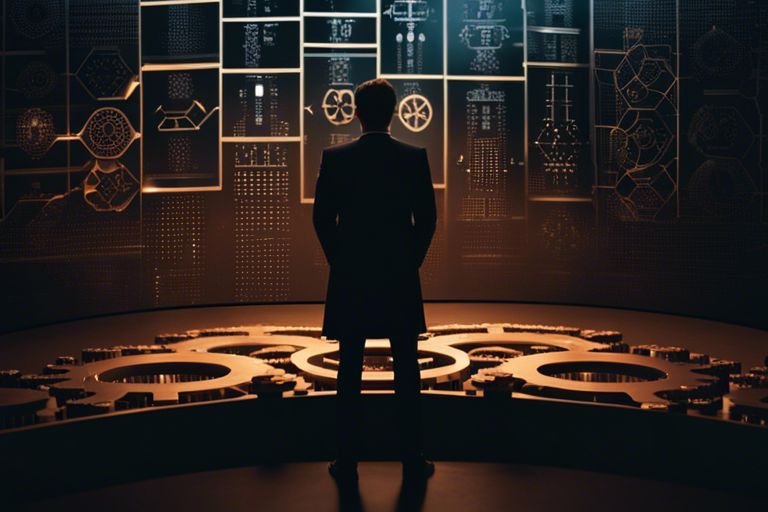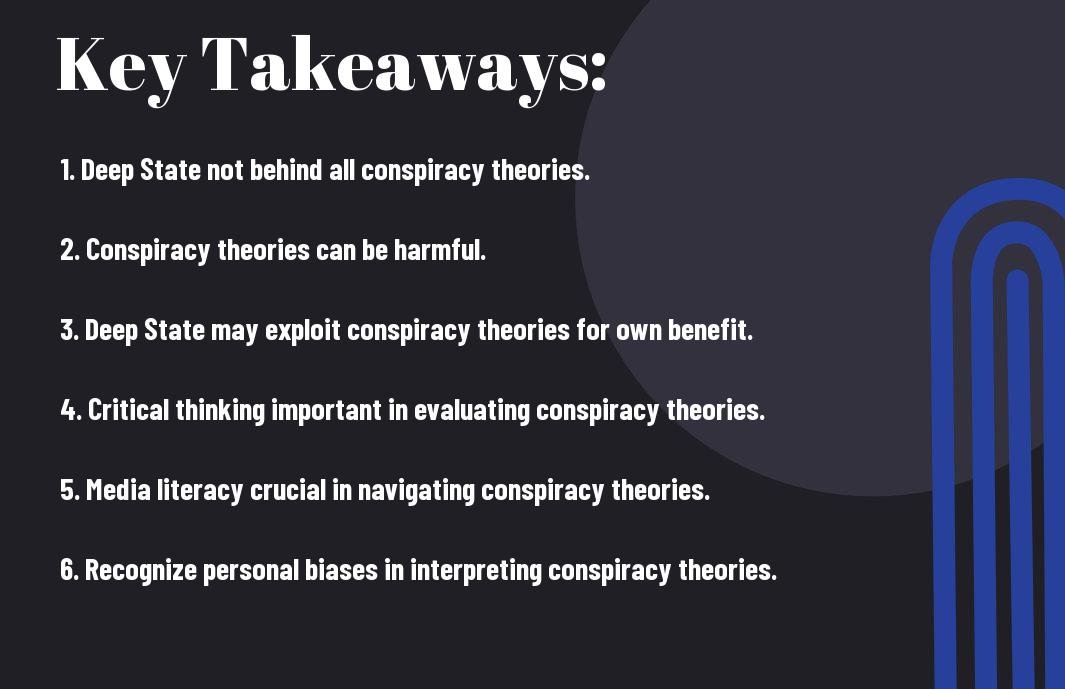
Most people have heard of conspiracy theories, but have you ever wondered if there is a connection to a ‘Deep State’ involvement? Dive into the intriguing world of conspiracy theories and explore the possibility of shadowy government forces pulling the strings behind the scenes. To understand more about this fascinating topic, check out the studies on 19 Conspiracy Theories in U.S. History – Oxford Academic for in-depth insights and analysis.

The concept of the Deep State refers to a group of influential individuals within a government, military, or other institutions which work secretly behind the scenes to influence policy and decision-making. These individuals often operate beyond the control of elected officials and are believed to have their own agenda.
Deep state theories have been around for centuries, with some historians pointing to the influence of secret societies and shadowy figures in shaping historical events. From the Illuminati to the Freemasons, there have been numerous examples of groups believed to pull the strings from the shadows.

Defining what constitutes a conspiracy theory can be tricky, as opinions often vary on the matter. In essence, a conspiracy theory is a belief that a group of people or organizations are secretly working together to achieve some malevolent goal. These theories often lack concrete evidence and rely heavily on speculation and assumptions.
Conspiracy theorists who believe in the existence of a deep state often gravitate towards specific narratives that reinforce their beliefs. These narratives may include ideas such as government officials orchestrating events for political gain, or powerful entities controlling the media to manipulate public opinion. These theories can be captivating, but it’s important to approach them with a critical eye.
Dive deeper into the world of deep state conspiracies, and you’ll find a fascinating web of interconnected theories that seek to explain the hidden forces at play in society. From alleged secret societies pulling the strings behind the scenes to intricate plots of global domination, these narratives can be both intriguing and alarming. It’s crucial to approach these theories with skepticism and a healthy dose of critical thinking to separate fact from fiction.
Roots: Your belief in conspiracies may have deep psychological roots. Research suggests that the need for control, uncertainty avoidance, and the desire for understanding can drive individuals towards conspiracy theories. By recognizing these underlying factors, we can better understand why some people are more prone to embracing conspiracy narratives.
Echo: With the rise of social media, echo chambers have become breeding grounds for conspiracy theories. These digital spaces reinforce individuals’ existing beliefs by exposing them to like-minded people and filtering out opposing viewpoints. As a result, individuals are more likely to accept and share conspiratorial ideas without critical evaluation.
All conspiracy theories have one thing in common – a claim of hidden agendas and secretive groups pulling the strings behind the scenes. It’s crucial to analyze these claims with a critical eye, looking for concrete evidence to support these allegations.
When stepping into conspiracy theories, it’s important to separate fact from speculation. While some claims may seem plausible on the surface, true evidence is what separates a theory from reality. Look for verifiable sources and concrete data to discern the truth from mere conjecture.
Conspiracy theories can often blur the lines between fact and fiction, making it challenging to distinguish between what is real and what is merely speculation. By approaching these theories with a skeptical mindset and a focus on tangible evidence, we can begin to unravel the truth behind the conspiracies.
On the whole, delving into conspiracy theories can be a fascinating journey that sparks curiosity and critical thinking. However, it is crucial to differentiate between well-researched facts and baseless speculations. While there may be instances of government involvement in shaping certain narratives, it is necessary to approach these theories with a skeptical yet open mind. By dissecting conspiracy theories with logic and evidence, we can separate the truth from fiction and gain a deeper understanding of the world around us. Do not forget, the truth is out there, but it may not always be what it seems at first glance.